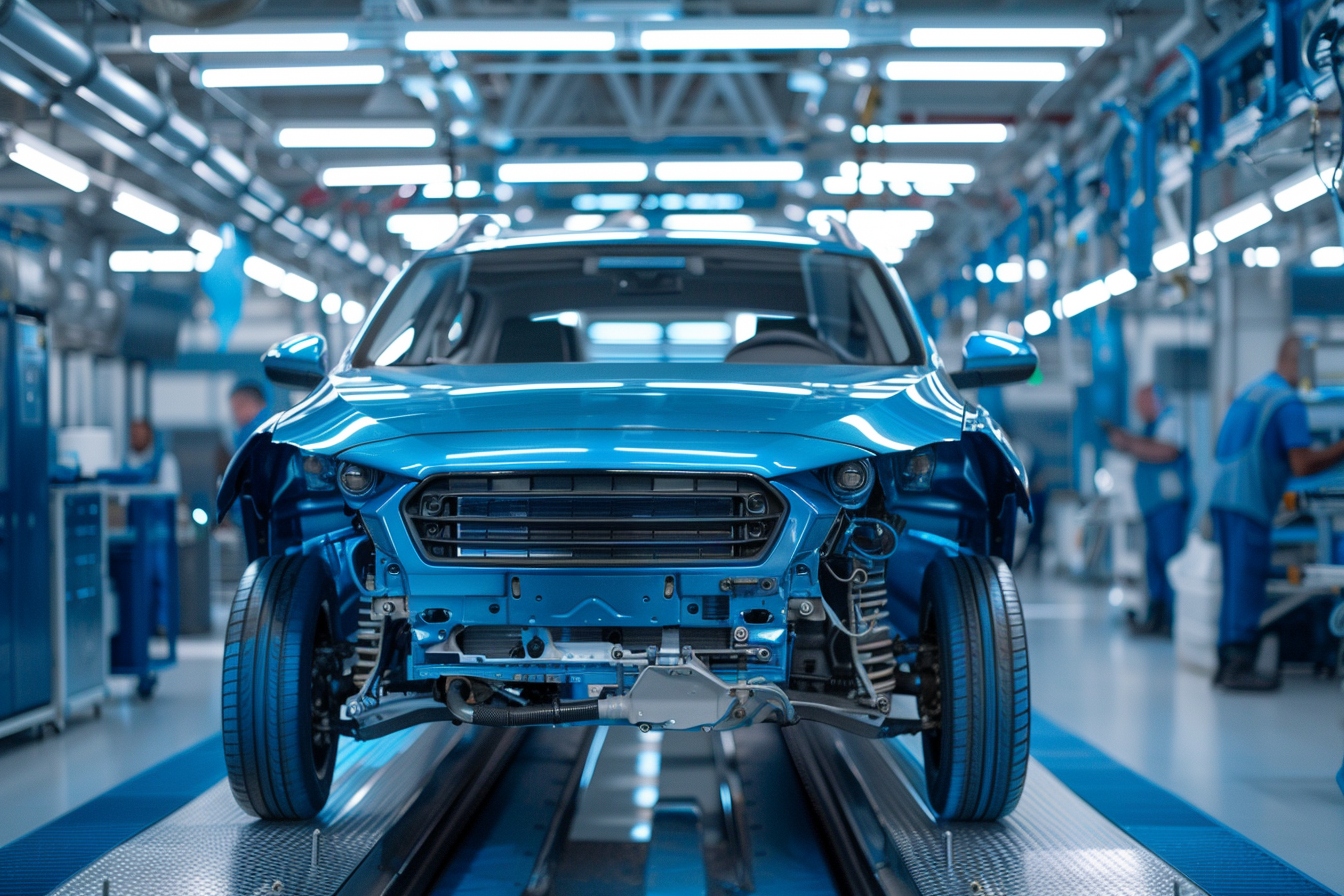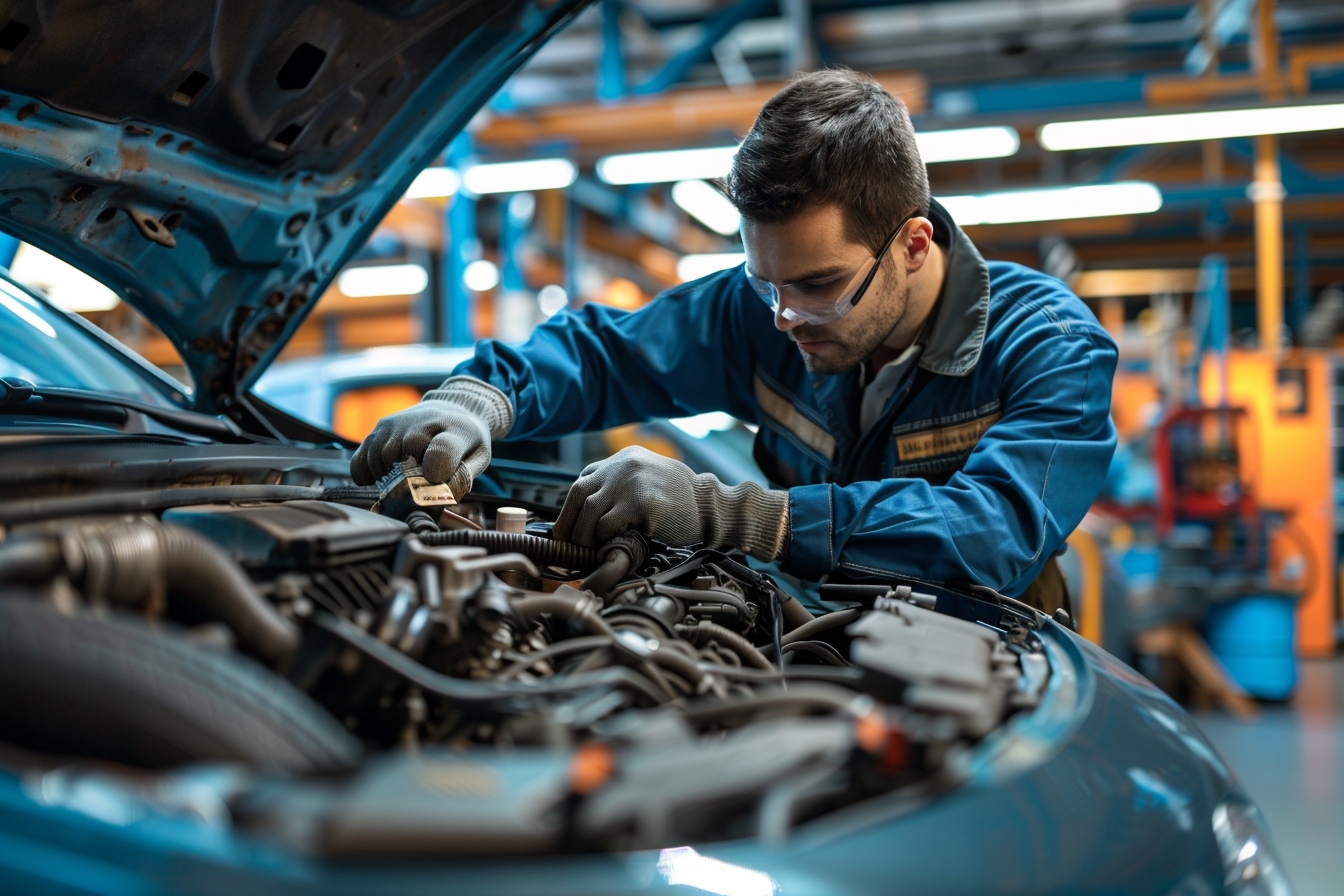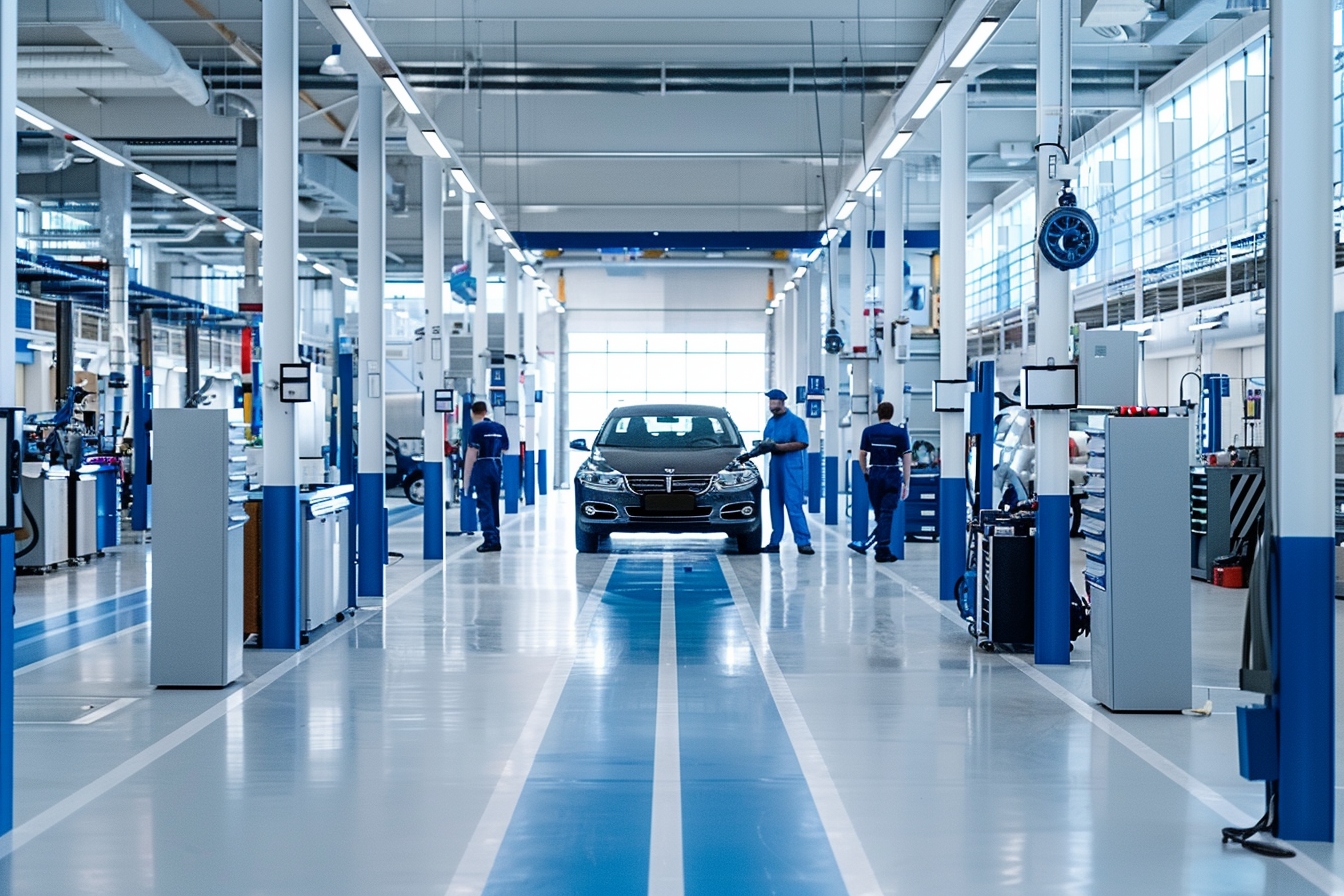The technical inspection turns out to be a fundamental step in the life of a vehicle. Not only does it represent a legal obligation, but it also has a significant safety and environmental aspect.
What is technical inspection?
The technical inspection is a periodic regulatory inspection, mandatory for most land motor vehicles. During this procedure, various key elements of the vehicle are examined by an authorized professional in order to verify their proper functioning and their compliance with the standards imposed by legislation.
The primordial interest of technical control

Safety first
Carrying out a regular technical inspection primarily guarantees the safety of the vehicle occupants as well as that of other road users. A careful check makes it possible to detect anomalies likely to cause accidents. Brakes, tires, suspension and other safety systems are put under the microscope to make sure everything is working as it should.
A preserved environment
In addition, this control focuses on the environmental aspect. Polluting emissions from motor vehicles are subject to strict evaluation. This helps reduce the amount of pollutants released into the atmosphere, in accordance with current ecological standards.
The vehicles concerned and the frequency of checks
All private and light utility vehicles must pass this inspection, with the exception of motorized two-wheelers and certain other specific cases. Generally speaking, a vehicle must undergo its first technical inspection four years after its first entry into circulation, then every two years. Utility vehicles, for their part, have a closer inspection rate.
Details of checks during technical inspection

A thorough visual and technical inspection
During the check, the professional examines 133 check points grouped into 10 main functions, including the body structure, equipment, visibility, lighting, wheel axle, chassis, transmission, and of course , braking devices. The exhaustive list of elements checked ensures an in-depth analysis of the condition of the vehicle.
Control of polluting emissions
Particular attention is given to polluting emissions. Vehicles are tested to ensure that emissions do not exceed regulatory limits, helping to protect the environment from excessive emissions.
The consequences in the event of a technical inspection failure
Ignoring the obligation to pass the technical inspection can result in legal consequences, including a fine for latecomers. In the event of an accident, if the insurance company discovers that the technical inspection was not up to date, this could compromise the policyholder’s coverage.
How to prepare your vehicle for technical inspection?
Preliminary checks not to be neglected
Before carrying out the technical inspection, some checks can be carried out by the vehicle owner himself. The overall cleanliness of the vehicle is a basic criterion, but above all, a series of points such as the fluid levels (oil, coolant, brake fluid), the condition and pressure of the tires, the operation of the lights and indicators, must be reviewed.
The importance of regular maintenance
Regular vehicle maintenance by a qualified professional is also a good practice. This keeps the vehicle in good working order and protects it from premature aging or sudden failure.
Steps to follow after an unfavorable technical inspection
The counter-visit explained
If your vehicle has not passed the technical inspection, a second inspection may be required. This implies that the vehicle has presented defects which must be repaired within a given period, generally within two months, before being re-tested.
The importance of fixing defects
It is essential to quickly tackle the necessary repairs to ensure the safety of the vehicle and to comply with regulations. Garages are competent to repair your car and efficiently prepare for the counter-inspection.
Practical advice for a calm approach to technical inspection
Choosing the right time for the check
Opting to pass the technical inspection well before the deadline can be wise. This offers a certain margin in the event of a second inspection and allows any possible repair expenses to be spread.
Documentation ready and available
Ensuring you have all the necessary documents, such as the registration certificate or proof of a previous technical inspection, is essential to avoid a postponement of the inspection.
Select an approved technical inspection center

Verification of accreditations
Choosing an approved center guarantees the accuracy and reliability of the technical inspection. These establishments have the equipment and expertise necessary to evaluate your vehicle in accordance with current laws.
A careful search for more peace of mind
Considering the opinions and recommendations to find a trusted center can help approach the control in a more calm manner. The transparency and professionalism of the operator contribute to a better experience.
Technical inspection should not be seen as a constraint, but rather as an assurance of safety and compliance for everyone. By respecting deadlines and adequately preparing their vehicle, each motorist contributes to road safety and the preservation of our environment. A compliant vehicle means guaranteed peace of mind and a positive contribution to collective values in terms of traffic and ecology.












